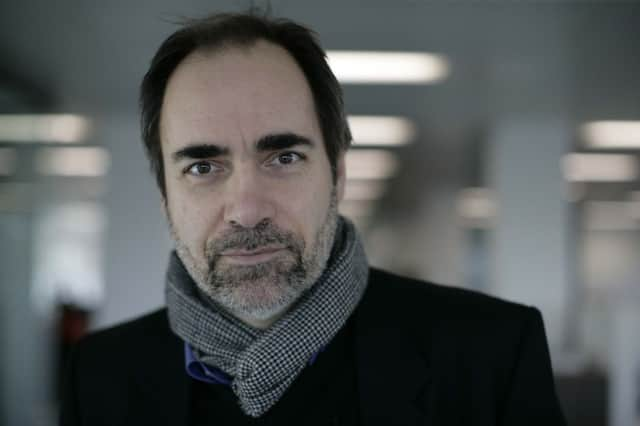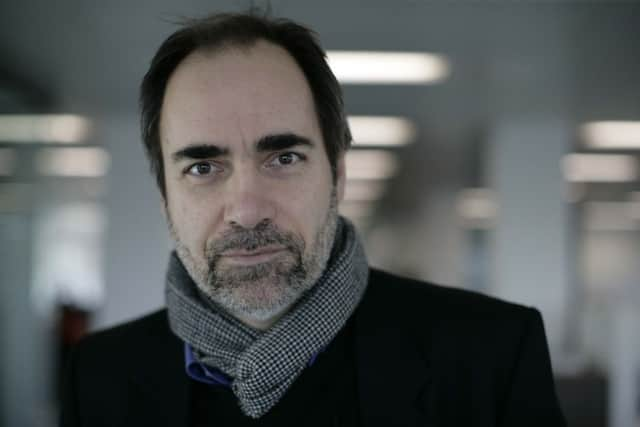How a brilliant mind turns evil


Ostland, published by Quercus, tells the extraordinary true story of the way a decent non-racist, non-Nazi detective became the very worst kind of villain.
In February 1941, in wartime Berlin, the idealistic young detective Georg Heuser joins the murder squad in the midst of the biggest manhunt the city has ever seen. A serial killer is slaughtering women on S-Bahn trains and leaving their battered bodies by the tracks.
Advertisement
Hide AdAdvertisement
Hide AdDavid chanced on the tale when he saw reference to it in Max Hastings’ review in the Sunday Times of Berlin at War by Roger Moorhouse.


“It was just a reference to the hunt for this man who was raping and killing women on trains at night and throwing their bodies onto the track. The whole of Berlin was starting to panic about this, and in the review, Hastings mentioned the fact that one of the detectives involved in tracking down the killer then became a war criminal.
“A murder detective is like the ultimate hero; a man who tracks down a serial killer/rapist is a classic thriller hero. But a Nazi war criminal is the absolute archetype of evil.
“And yet we have this one man who was both an archetypal hero and an archetypal villain. I thought what an amazing story and what a great premise for a book.
Advertisement
Hide AdAdvertisement
Hide Ad“It turns out that Georg Heuser was the arresting officer on the S-Bahn, a brilliant young detective. I had to find out his story.”
And that story was that as a reward for his efforts, Heuser was sent to newly-conquered Minsk, a place designated as a killing zone.
“And it was a very personal form of killing. People would be lined up beside a pit and get a bullet in the back of the head and then another lot of people would line up beside the pit, and they too would get a bullet in the back of the head.”
Of course there is the argument that Heuser and his kind were only obeying orders; but, as David says, nothing takes away from the indescribable evil of what they were doing.
Advertisement
Hide AdAdvertisement
Hide Ad“They knew that what they were doing was unforgivably wrong. They tried to distance themselves from it by being drunk all the time... And then he comes to trial as a war criminal in the 1960s.
“The book is a number of things. It starts out as a straightforward detective thriller, a murder hunt which then morphs into a war/holocaust story.”
On point of principle, the book is incredibly accurate in everything that Heuser does or that happens to him, David stresses. Heuser tells his own story, but as David says, he as the author felt morally obliged to tell the truth about the actual, factual events.
“We follow his passage, in his own words, from being quite an idealistic detective. He wanted to create a world of law and order. He wanted to create a sense of stability.
Advertisement
Hide AdAdvertisement
Hide Ad“ He was quite priggish, but that gets kicked out of him by the senior detectives. By the time the murderer is caught, we don’t exactly like him, but we can see that he is a decent person.”
And then comes the move to Minsk and all the horrors he commits.
“He makes excuses, but he knows that he is becoming a much worse serial killer than the killer he caught.”